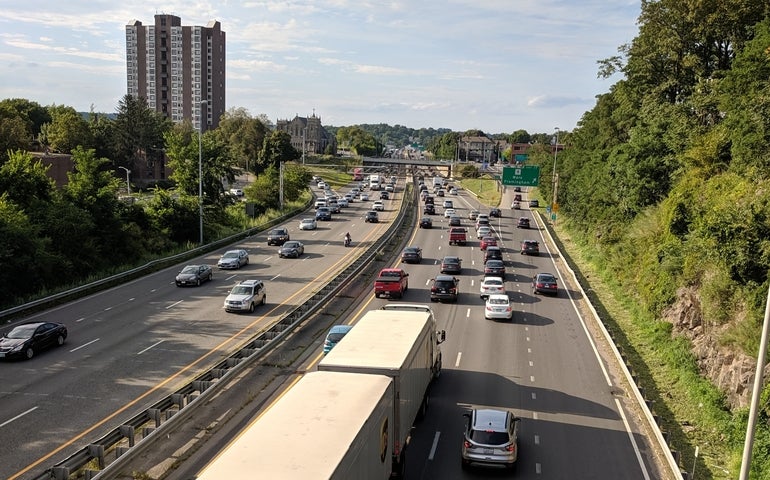Lawmakers are preparing to debate new forms of transportation revenue and Gov. Charlie Baker often touts his administration’s record investment in the MBTA, but the status quo is nowhere near enough to meet the state’s growing transit needs, according to one business coalition.
Instead, the group A Better City suggests in a new 16-page report, Massachusetts leaders should commit to raising and spending $50 billion on transportation over the next two decades, all with new revenue from a range of transportation-specific sources like fees, tolls and taxes.
The eyebrow-raising figure includes $10 billion to help roads, bridges and public transit achieve a state of good repair, $10 billion to increase capacity as the population grows, and $30 billion to modernize, decarbonize and prepare infrastructure to cope with the effects of climate change.
Rick Dimino, the group’s CEO, said the state needs to “go big” and “think about how we move the needle” on a topic that directly affects housing, economic development, the environment and the ways people get around.
“We have to stop just thinking about fixing what we have,” Dimino told the News Service. “We have to pivot to thinking about making sure we fix what we have but also thinking about the next wave of investments we need to make in our transportation system.”
Researchers proposed seven new or boosted revenue streams to generate the $50 billion they say is needed.
The majority of that money, about 54 percent, could come from a broad expansion to roadway pricing, adding $2-per-trip tolls to Interstate 93, $1 tolls on Interstate 93 and 95 interchanges, $1 fees to cross state lines by car at several border locations, and more.
Researchers also suggested an 11.5 cent increase in the gas tax could raise about $7 billion by 2040, and they named higher fees on ride-hailing apps and Registry of Motor Vehicles transactions, closing an auto trade-in sales tax loophole, adding a commercial parking surcharge and using revenue from the multi-state initiative to reduce carbon emissions from the transportation sector as other strategies.
The group’s $50 billion would come entirely on top of existing spending plans. Dimino said other metropolitan areas have taken similar steps in recent years. Seattle is planning to raise and spend $54 billion over 25 years, according to the report, and Los Angeles will pursue a $120 billion target over the next four decades.
A Better City is a downtown Boston-based group of business leaders that advocates for economic growth and sustainability. Doug McGarrah, the group’s board chair and partner at Foley Hoag, said the plan “will mean less traffic, better transit, and cleaner air – with an overall faster and easier daily commute for everyone.” Jeanne Pinado, CEO of Madison Park Development Corp., said in a statement released by ABC that the group’s plan would address inequities, better connect workers to jobs, and keep the economy moving forward.
The group’s report was also influenced by James Aloisi, who served as transportation secretary under Gov. Deval Patrick and was thanked in the report for his “invaluable counsel and contributions.”
The Massachusetts Department of Transportation’s current capital investment plan calls for more than $18 billion in investments over the next five years, about $8 billion of which will go to the MBTA.
In February, A Better City projected that Massachusetts faces an $8.4 billion revenue shortfall over the next 10 years to maintain a state of good repair for transportation infrastructure, then upgraded that figure to $10 billion.
There is some momentum on Beacon Hill to take action about growing transportation needs, with service disruptions on the T and the Baker administration’s recent congestion study adding a sense of urgency.
The House plans to debate options this month, but leaders there still haven’t outlined a proposal. A coalition of business groups — which includes A Better City — this month said a majority of its members support new options to raise transportation revenue such as a hike in the state’s gas tax.
“We were asked to do our homework and we wanted to do the homework, and this is what our homework points to,” Dimino said.

